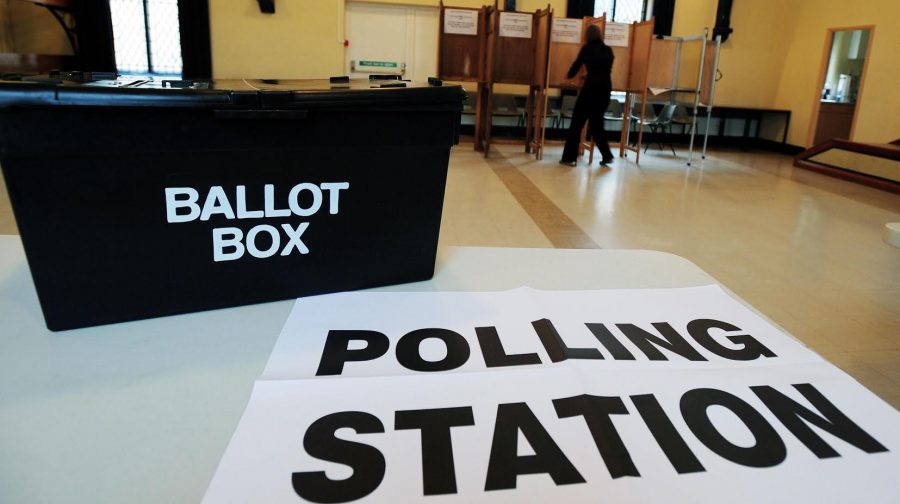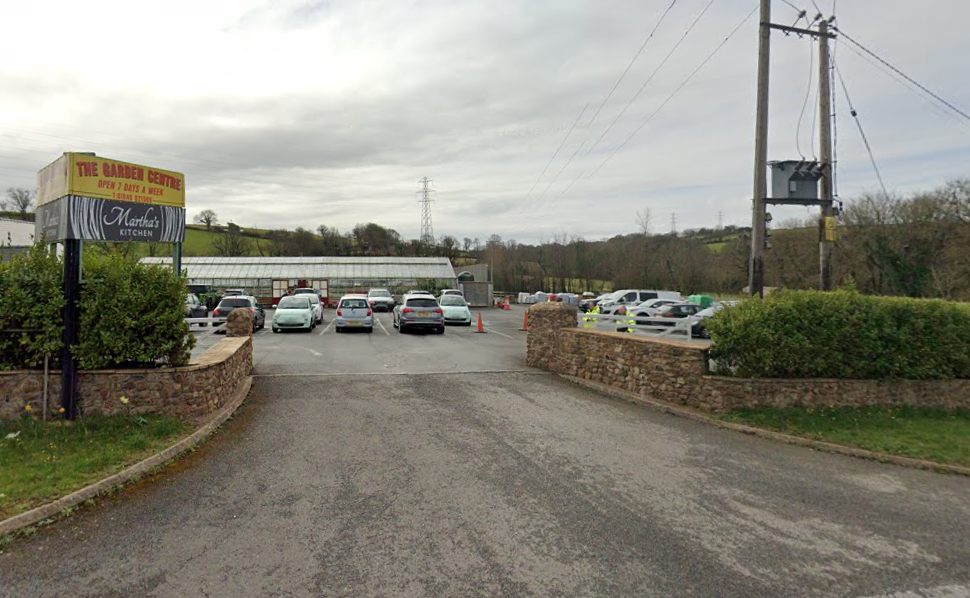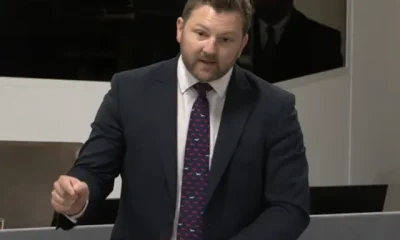Politics
Snap election builds in unfairness

A SNAP General Election is unlikely to break the break deadlock, the Electoral Reform Society has warned
The ERS says results are likely to be ‘clear as mud’ when it comes to translating voters’ preferences, with ‘vote-splitting, wasted votes and unfair results on an industrial scale’.
One in four (24%) voters are planning on voting ‘tactically’ – rather than for their first choice – increasing the likelihood of random results under Westminster’s winner-takes-all voting system, according to BMG polling for the Society.
When the same question was asked before the 2017 general election, 20% of people said they’d opt for someone who was not their first choice.
Westminster’s voting system rests on a handful of marginals changing hands: “Eleven seats were won by less than 100 votes in 2017. North East Fife was held by the SNP by just two votes. Such are the vagaries of the system that the Conservatives could have won an absolute majority based on just 533 extra votes in the nine most marginal constituencies.
“A working majority could have been achieved on just 75 additional votes in the right places. Two very different outcomes based on less than 0.0017 per cent of voters choosing differently,” the Society’s 2017 election report noted.
Darren Hughes, Chief Executive of the Electoral Reform Society, said: “Few believe a third General Election in the space of four years will ‘fix’ the current impasse: the only agreement seems to be that there is yet more volatility coming our way, with parties hoping to gain from the chaos.
“It’s amusing to remember that Westminster’s voting system is supposed to deliver ‘strong and stable’ government. It has totally failed to do what it says on the tin, and no wonder – people are rightly shopping around, but this two-party system is totally unable to cope.
“This election is likely to see ‘tactical’ voting on a scale never seen before, alongside widespread ‘vote-splitting’ and candidates getting in on fractions of the vote.
“First Past the Post voting is now an engine of volatility, which could make the current problems even worse. We could see a ‘wrong winner’ election – where the biggest party did not win the most votes – another hung parliament, and wasted votes in the millions. It’s time to join other advanced democracies in backing a fair voting system where seats match votes.
“This must be the last election conducted using Westminster’s scandalously unfair electoral system. It’s time for Westminster catch up with the rest of the world, with proportional representation and an end to the disaster of winner-takes-all voting.
“Whatever the case, this election will be a ‘hold your nose’ ballot, with one in four feeling forced to vote tactically for their second or third choice.
“A snap election guarantees nothing but an unfair lottery for voters. Let’s build a democracy fit for the 21st century, with an electoral system that encourages cooperation, not gridlock.”
ERS analysis of the 2017 election found that millions of people’s votes were thrown on the electoral scrapheap. 68% of votes had no impact on the result – representing 22 million votes going to waste.
Professor Sir John Curtice told LBC today that this election is likely to see a very high number of votes for parties other than the traditional ‘big two’.
In June, he told the ERS: “There is little doubt that Britain’s traditional two-party system is facing its biggest challenge yet in the wake of the Brexit impasse. If that challenge persists it would seem inevitable that there will renewed debate about the merits of the first-past-the-post electoral system.”
The latest YouGov poll puts Labour and the Conservatives on joint support of 59% – far below their 82% reached in 2017.
The ERS is calling for a proportional voting system for Westminster, the Single Transferable Vote system used for Scotland’s local elections and elections in Ireland.
The warped nature of the system is reflected by the fact that in 2017 it took 43,000 votes to elect a Conservative MP, 49,000 for Labour, nearly 200,000 per Lib Dem and over 500,000 votes for the Greens’ single MP. It took just 28,000 votes per SNP MP and 29,000 per DUP MP. The SNP, Greens, Plaid Cymru and Liberal Democrats support PR.
Business
Cosheston Garden Centre expansion approved by planners

PLANS to upgrade a garden centre on the main road to Pembroke Dock have been given the go-ahead.
In an application to Pembrokeshire County Council, submitted through agent Hayston Developments & Planning Ltd, Mr and Mrs Wainwright sought permission for upgrade of a garden centre with a relocated garden centre sales area, additional parking and the creation of ornamental pond and wildlife enhancement area (partly in retrospect) at Cosheston Garden Centre, Slade Cross, Cosheston.
The application was a resubmission of a previously refused scheme, with the retrospective aspects of the works starting in late 2023.
The site has a long planning history, and started life as a market garden and turkey farm in the 1980s, and then a number of applications for new development.
A supporting statement says the previously-refused application included setting aside a significant part of the proposed new building for general retail sales as a linked farm shop and local food store/deli in addition to a coffee bar.
It was refused on the grounds of “the proposal was deemed to be contrary to retail policies and the likely impact of that use on the vitality and viability of nearby centres,” the statement said, adding: “Secondly, in noting that vehicular access was off the A 477 (T) the Welsh Government raised an objection on the grounds that insufficient transport information had been submitted in respect of traffic generation and highway safety.”
It said the new scheme seeks to address those issues; the development largely the same with the proposed new garden centre building now only proposed to accommodate a relocated garden centre display sales area rather than a new retail sales area with other goods, but retaining a small ancillary coffee bar area.
“Additional information, in the form of an independent and comprehensive Transport Statement, has now been submitted to address the objection raised by the Welsh Government in respect of highway safety,” the statement said.
It conceded: “It is acknowledged that both the creation of the ornamental pond and ‘overspill’ parking area do not have the benefit of planning permission and therefore these aspects of the application are ‘in retrospect’ and seeks their retention.”
It finished: “Essentially, this proposal seeks to upgrade existing facilities and offer to the general public. It includes the ‘relocation’ of a previously existing retail display area which had been ‘lost’ to the ornamental pond/amenity area and to provide this use within the proposed new building and moves away from the previously proposed ‘farm shop’ idea which we thought had merit.
“This revised proposal therefore involves an ‘upgrading’ rather than an ‘expansion’ of the existing garden centre use.”
An officer report recommending approval said that, while the scheme would still be in the countryside rather than within a settlement boundary, the range of goods sold would be “typical of the type of goods sold in a garden centre and which could be sold elsewhere within the garden centre itself,” adding: “Unlike the recent planning application refused permission it is not intended to sell delicatessen goods, dried food, fruit and vegetables, pet products and gifts.”
It added that a transport statement provided had been reviewed by the Welsh Government, which did not object on highway grounds subject to conditions on any decision notice relating to visibility splays and parking facilities.
The application was conditionally approved.
Business
Tenby Poundland site could become retro gaming lounge

TENBY’S former Poundland and Royal Playhouse cinema could become a retro computer gaming lounge, plans submitted to the national park hope.
Following a takeover by investment firm Gordon Brothers, Poundland shut 57 stores earlier this year, including Tenby.
Prior to being a Poundland, the site was the Royal Playhouse, which had its final curtain in early 2011 after running for nearly a century.
The cinema had been doing poor business after the opening of a multiplex in Carmarthen; in late 2010 the opening night of the-then latest Harry Potter blockbuster only attracted an audience of 12 people.
In an application to Pembrokeshire Coast National Park, Matthew Mileson of Newport-based MB Games Ltd, seeks permission for a ‘CONTINUE? Retro Gaming Lounge’ sign on the front of the former Gatehouse (Playhouse) Cinema, White Lion Street, most recently used as a Poundland store.
The signage plans form part of a wider scheme for a retro gaming facility at the former cinema site, which has a Grade-II-listed front facade, a supporting statement through agent Asbri Planning Ltd says.
“The subject site is located within the settlement of Tenby along White Lion St. The site was formerly the Gatehouse Cinema and currently operates as a Poundland discount store, which closed on October 18.”
It adds: “This application forms part of a wider scheme for the change of use to the former Gatehouse Cinema. Advertisement consent is sought for a non-illuminated aluminium composite folded panel that will be bolted onto the front façade of the proposed building, in replacement of the existing signage (Poundland).”
It stresses: “It is considered that the proposed advertisement will not have a detrimental impact on the quality of the environment, along with being within a proportionate scale of the building. It is considered that the proposed signage will reflect site function.
“Furthermore, due to the sympathetic scale and design of the sign itself, it is considered that the proposal will not result in any adverse visual amenity impacts.
“The proposal is reduced in sized compared to the existing Poundland advertisement. The sign will not be illuminated. Given the above it is considered that such proportionate signate in association with the proposed retro gaming lounge is acceptable and does not adversely affect visual amenity.”
An application for a retro gaming lounge by MB Games Ltd was recently given the go-ahead in Swansea.
Business
Llandeloy cottage crochet plans given the green light

A CALL to change the use of a Pembrokeshire farm holiday cottage to a crochet workshop has been given the go-ahead by Pembrokeshire planners.
In an application to Pembrokeshire County Council, Mr and Mrs Evans of Lochmeyler Farm, Llandeloy, through agent Harries Planning Design Management, sought permission for a change of use of a self-catered cottage to a crochet workshop.
A supporting statement says the application, one of a number of historic farm diversification schemes on site “seeks to continue to evolve with current market demands,” the cottage proposed for the change of use once a former outbuilding that was originally converted in 1992 into “a well-established holiday let”.
It added: “Made by Margo is a well-regarded local business founded by Margo Evans, a passionate lifelong crafter who began knitting at a young age. Her company specialises in creating handcrafted, contemporary crochet products using high-quality natural materials.
“Accordingly, Margo is a highly sought-after teacher known for her popular crochet classes. This proposal is motivated by a recognised need for a permanent space for the business, as to date the applicant has needed to use community halls or similar spaces to accommodate clients.
“Thus, the proposed change of use will secure a permanent space for these workshops and will future proof the business against the lack of availability of public spaces.
“Other alternatives have been considered with the cottage being the most viable option, particularly as demand has waned for holiday cottage post Covid-19. The holiday cottage, whilst once popular, is no longer in high demand, with visitors requiring more modern amenities and larger spaces which without significant investment, this holiday cottage is unable to provide.
“Consequently, the cottage’s change of use will diversify the farm’s revenue, while simultaneously providing a permanent base for a small rural business. While the primary customer base is local, the space may also help attract seasonal tourism and broaden the business’s appeal.”
It says the operation would be on a small scale, with a maximum of six people per class and a three day per-week schedule.
An officer report, recommending approval, said: “The provision of a workshop would have both social and environmental benefits for the applicant and local community through the provision of business and income generated from the operation.
“With regard to environmental impacts, positive environmental impacts would be achieved through the re-use of the building. Whilst the proposed location is in the open countryside, which is not a sustainable location, the proposed operation of the business is low scale. It is considered that the number of trips would be of low frequency when compared to the potential number of trips that are generated from tourism.”
The application was conditionally approved.
-

 Crime5 days ago
Crime5 days agoPhillips found guilty of raping baby in “worst case” judge has ever dealt with
-

 Crime4 days ago
Crime4 days agoKilgetty scaffolder sentenced after driving with cocaine and in system
-

 Crime4 days ago
Crime4 days agoHousing site director sentenced after failing to provide breath sample following crash
-

 Crime4 days ago
Crime4 days agoMotorist banned for three years after driving with cannabis in system
-

 Education3 days ago
Education3 days agoTeaching assistant struck off after asking pupil for photos of her body
-

 Crime1 day ago
Crime1 day agoMan spared jail after baseball bat incident in Milford Haven
-

 News6 days ago
News6 days agoJury retires tomorrow in harrowing Baby C rape trial
-

 Crime5 days ago
Crime5 days agoMilford Haven pensioner denies exposure charges

























